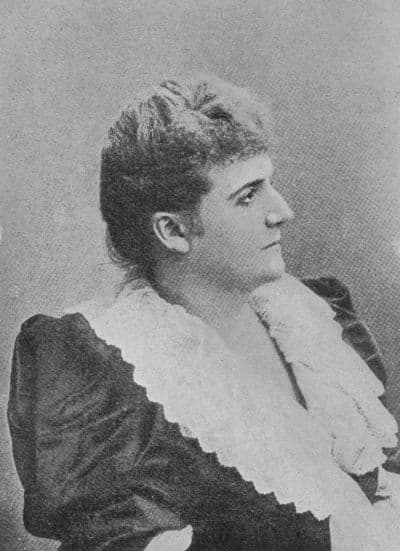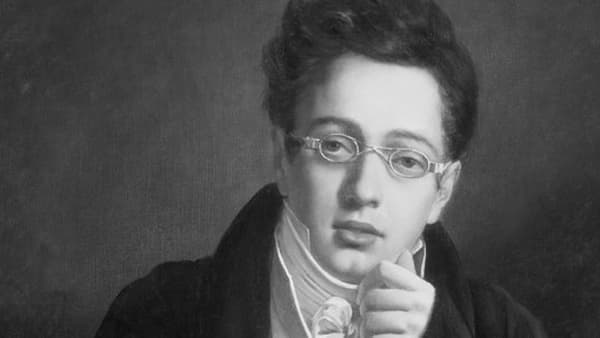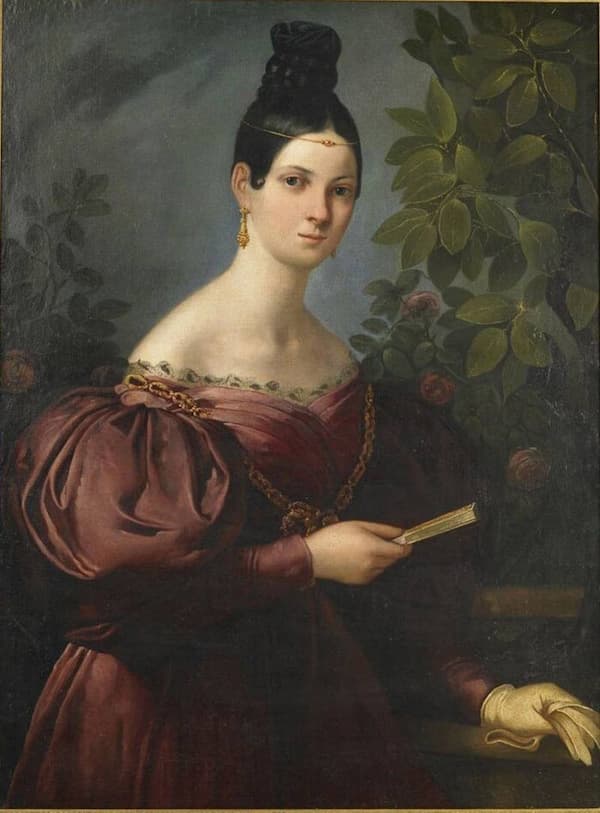In the ‘normal’ lives depicted in opera, our main characters are surrounded by servants – someone to bring the tea or the coffee, or drinks at the party, or whatever little things need to be handled in the background.
In a couple of operas, however, those same servants, through their unfaithfulness, make the action take a different direction than one of the main characters intended.
Despina in Mozart’s Così fan tutte
Take for example, the maid Despina in Mozart’s Così fan tutte. From her first appearance, she’s complaining about her job, and then when Fiordiligi and Dorabella come in, upset that their fiancés are being sent off to war, she laughs at them rather than sympathizing. Despina falls in with Don Alfonso’s plans to test her employers’ vows of faithfulness and introduces two ‘Albanians’ into the house. These are the two fiancés in disguise with each wooing the other’s fiancée. Later in the opera, to support the faked suicides by the Albanians who are wooing Fiordiligi and Dorabella, she appears as a pseudo doctor to ‘cure’ them, spouting nonsense Latin.
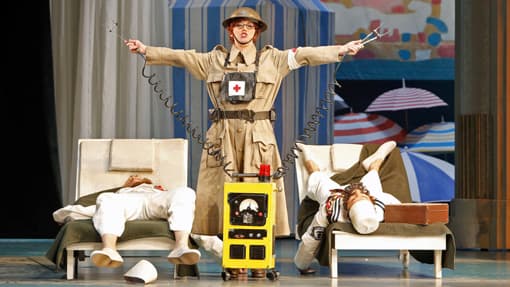
Susanna Biller (Despina) as the fake doctor, 2013, San Francisco Opera
Wolfgang Amadeus Mozart: Così fan tutte, K. 588 – Act I Scene 3: Eccovi il medico (Stuart Burrows, Ferrando; Thomas Allen, Guglielmo; Richard van Allan, Don Alfonso; Kiri Te Kanawa, Fiordiligi; Agnes Baltsa, Dorabella; Royal Opera House Orchestra, Covent Garden; Colin Davis, cond.)
Later in the opera, to marry her two employers off to the Albanians, she appears as a notary, prepared to draw up the false marriage contract.
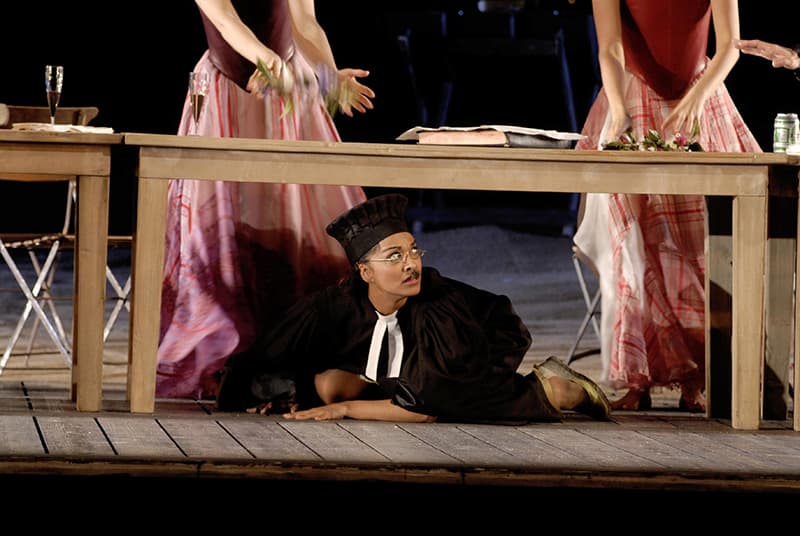
Danielle Deniese (Despina) disguised as the notary, 2018 (Metropolitan Opera)
Wolfgang Amadeus Mozart: Così fan tutte, K. 588 – Act II Scene 4: Miei Signori, tutto e fatto (Stuart Burrows, Ferrando; Thomas Allen, Guglielmo; Richard van Allan, Don Alfonso; Kiri Te Kanawa, Fiordiligi; Agnes Baltsa, Dorabella; Royal Opera House Chorus; Royal Opera House Orchestra, Covent Garden; Colin Davis, cond.)
Figaro in Rossini’s Il barbiere di Sevilla
Another unfaithful servant appears in two different operas: Figaro. In Rossini’s Il barbiere di Sevilla, Figaro runs Don Bartolo’s household, describing himself as the factotum, doing every job as ‘barber, hairdresser, surgeon. Botanist, apothecary, veterinary…’. We learn later that he actually has his own shop, but has a full run of the Bartolo household. When Figaro meets his old master, Count Almaviva, who is interested in Don Bartolo’s ward, the lovely Rosina, Figaro is quick to sell out his current master in order to get Count Almaviva what he wants.
Gioachino Rossini: Il barbiere di Siviglia (The Barber of Seville) – Act I: La ran la le ra … Cavatina: Largo al factotum della citta (Tito Gobbi, Figaro; Philharmonia Orchestra; Alceo Galliera, cond.)
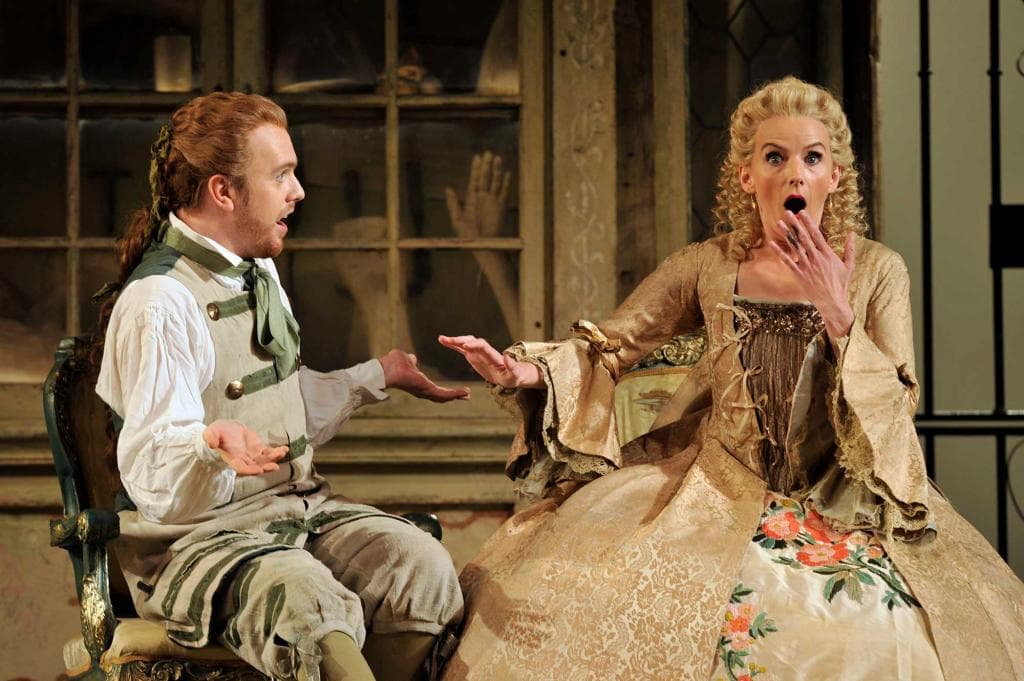
Morgan Pearse (Figaro) and Sarah Tynan (Rosina), 2017, English National Opera (Photo by Robbie Jack)
Just as Despina did in Così fan tutte, Figaro promises that he will take care of everything. Figaro then arranges that Almaviva, in the guise of a drunken soldier named Lindoro, will be billeted in the house. Rosina is just as eager to meet Lindoro, whom she has only heard serenading under her balcony, so Figaro has a ready assistant in the house. By the end of the opera, the marriage contract is signed and Don Bartolo’s desires to marry his niece are thwarted by all of Figaro’s machinations.
Figaro in Mozart’s Le Nozze di Figaro
This is the same Count Almaviva that the same Figaro blocks in Mozart’s Le Nozze di Figaro from meddling with his wife-to-be, Susanna. Figaro has to devise all sorts of tricks to divert Almaviva’s attention from Susanna and back to Rosina, his wife.
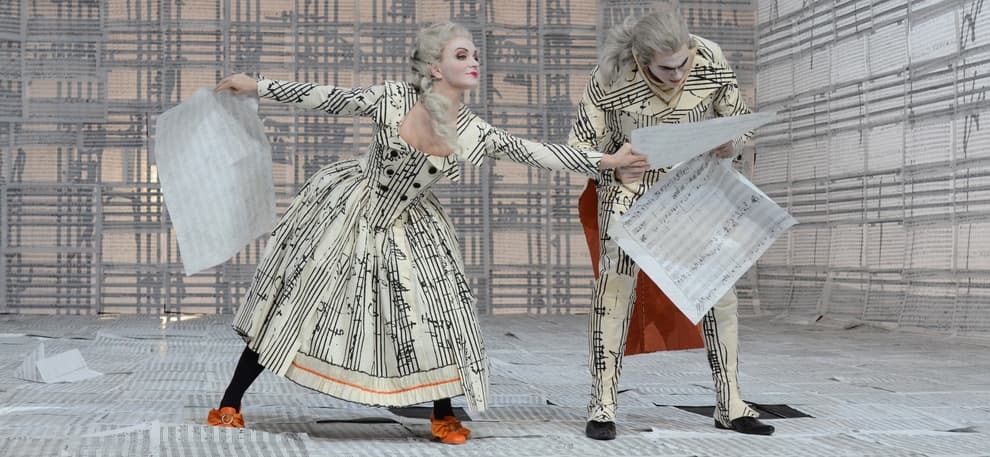
Hamburg State Opera, 2022 (Photo by Karl Forster)
Wolfgang Amadeus Mozart: Le nozze di Figaro (The Marriage of Figaro), K. 492 – Act I Scene 2: Cavatina: Se vuol ballare, Signor Contino (José Van Dam, Figaro; Vienna State Opera Orchestra; Herbert von Karajan, cond.)
Don Pasquale in Donizetti’s Don Pasquale
A similar situation happens in Donizetti’s Don Pasquale. Anxious to be married so he can have an heir that he can control, Don Pasquale is searching for a wife. His physician, Dr Malatesta, feeds his desire by describing the ideal wife to him: honest, modest, sweet, and fresh from the convent. Norina (beloved of Pasquale’s nephew Ernesto) is presented as Malatesta’s sister and a notary is called for immediately. Pasquale signs the marriage contract, but before Norina can, Ernesto appears. Malatesta tells him to play along and he witnesses Norina’s signature.
Norina, as prompted by Malatesta, turns out not to be the compliant spouse Pasquale wanted – invoices for dresses and jewels, and a tyrannical wife are Pasquale’s life now.
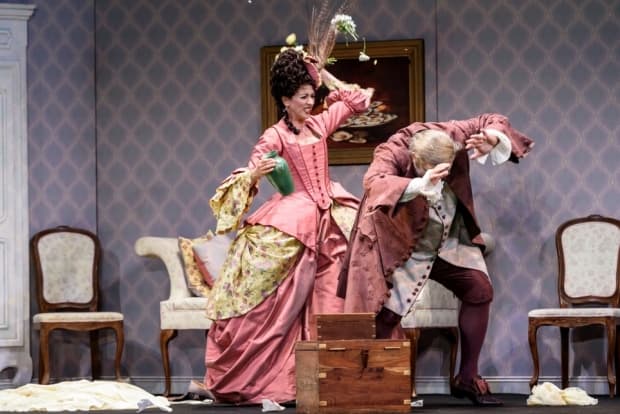
Lisette Oropesa (Norina) and Renato Girolami (Don Pasquale) happily married, 2017, Glyndebourne (photo by Bill Cooper)
Gaetano Donizetti: Don Pasquale: Act III Scene 1 – Introduction: I diamanti presto, presto (Sesto Bruscantini, Don Pasquale; Ambrosian Opera Chorus; Philharmonia Orchestra; Riccardo Muti, cond.)
When she appears to be unfaithful, Pasquale wants no more to do with his household problem. Dr Malatesta has the solution: if Ernesto can marry his beloved, then Pasquale’s expensive bride will leave. Pasquale agrees and Ernesto and Norina are reunited, to Pasquale’s surprise. The moral at the end is about not marrying in old age.
Gaetano Donizetti: Don Pasquale – Act III Scene 6: Bravo, bravo, Don Pasquale! (Sesto Bruscantini, Don Pasquale; Mirella Freni, Norina; Leo Nucci, Dr Malatest; Gösta Weinbergh, Ernesto; Ambrosian Opera Chorus; Philharmonia Orchestra; Riccardo Muti, cond.)
When the ones you rely on let you down but it still comes out right in the end, you know you’re in a comic opera!
For more of the best in classical music, sign up for our E-Newsletter

